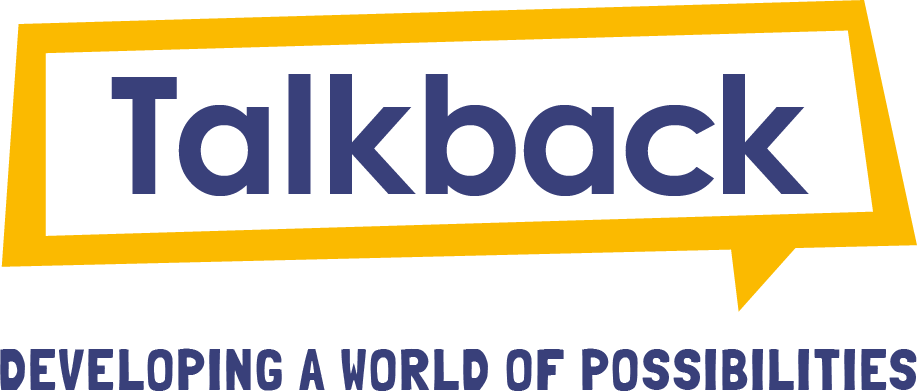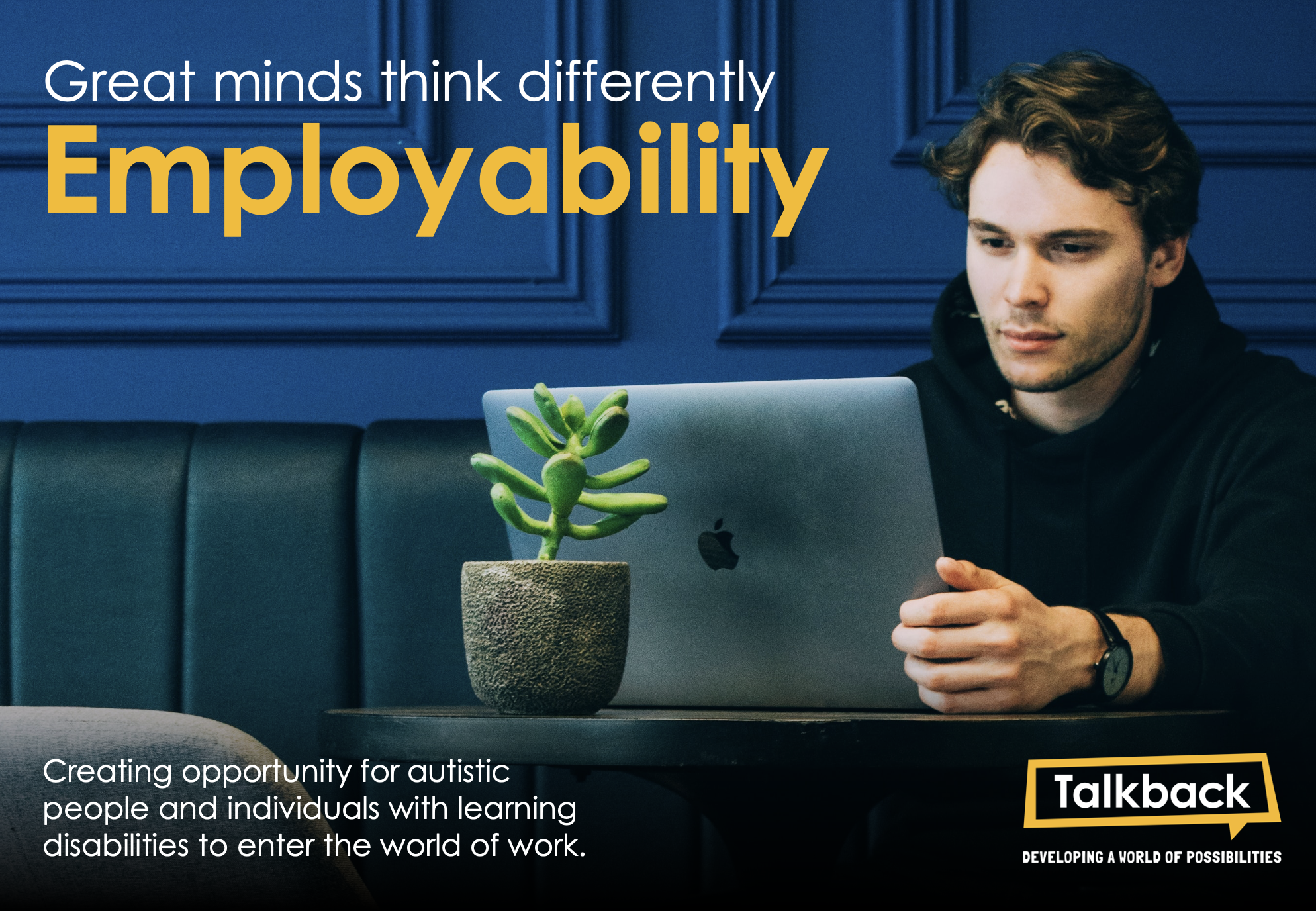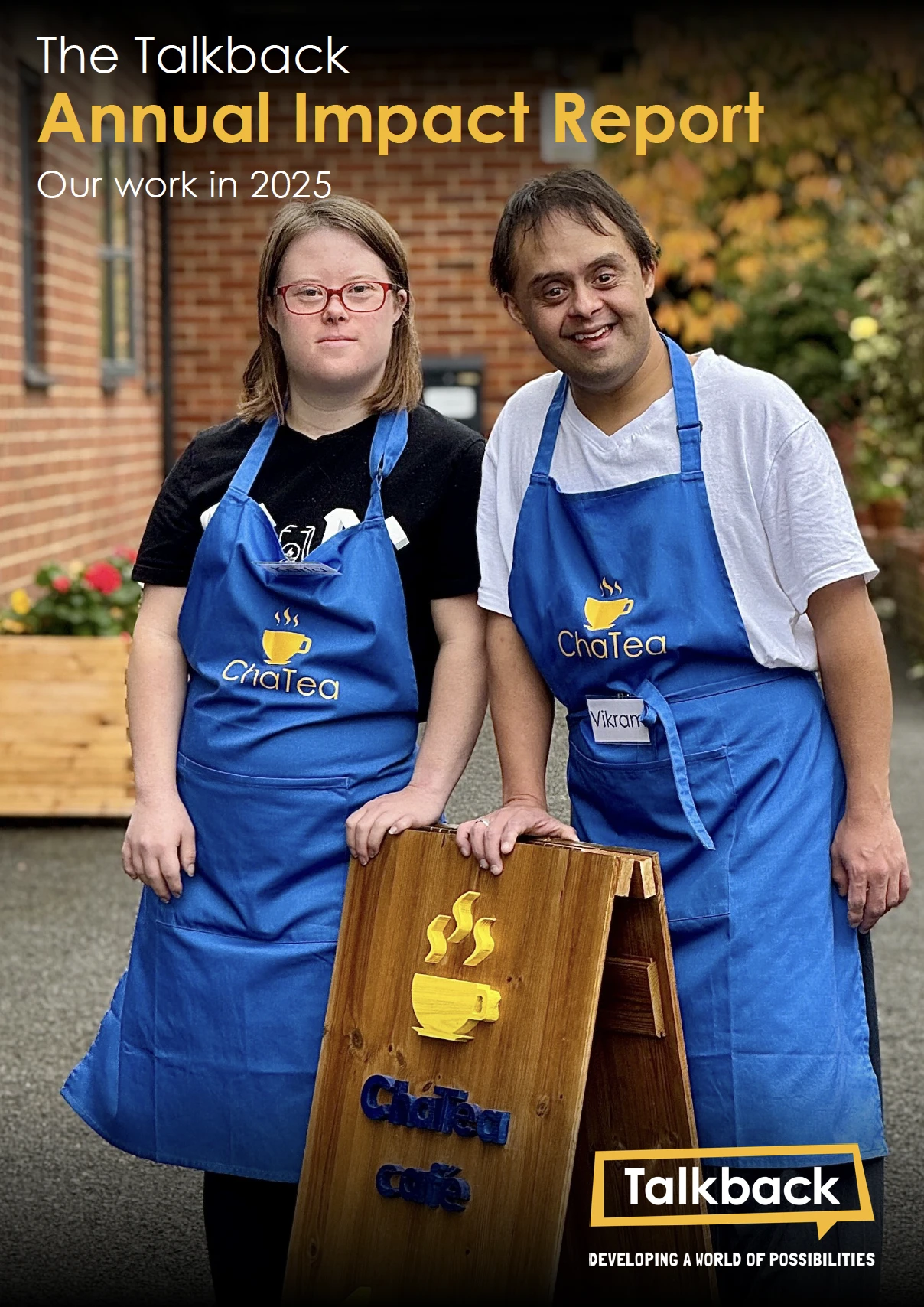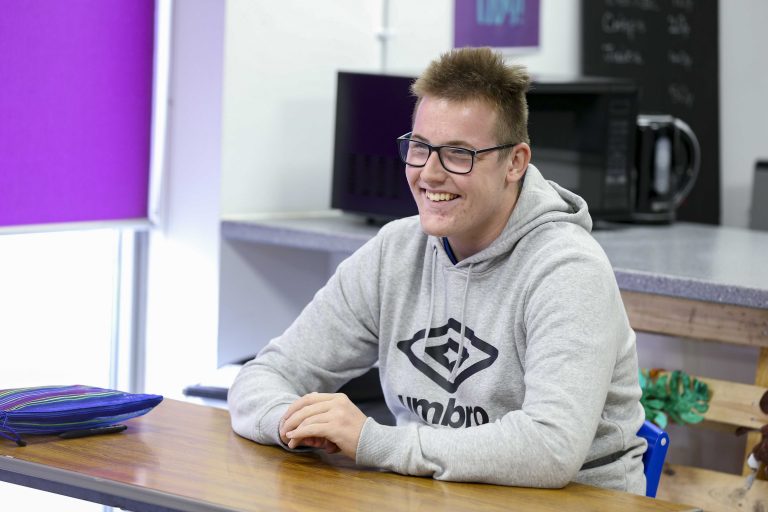Employability
Home » Our Services » Employability
Creating opportunities for autistic people and individuals with learning disabilities to enter the world of work.
Great minds don't think alike. They challenge each other to think differently. The people who teach you the most are the ones who share your principles, but not your thought processes.
Adam Grant
The Talkback Employment Journey
Our employability programme is designed to provide meaningful outcomes, offering detailed support at every step of a person’s employment journey, always helping them reach a destination that is right for them.
For some people, their aim will be a full-time job. For others, a part-time job or volunteer work will be what they want. And that’s fine. Our experience and work with autistic people and those with learning disabilities has taught us how to win opportunities for each person we work with.
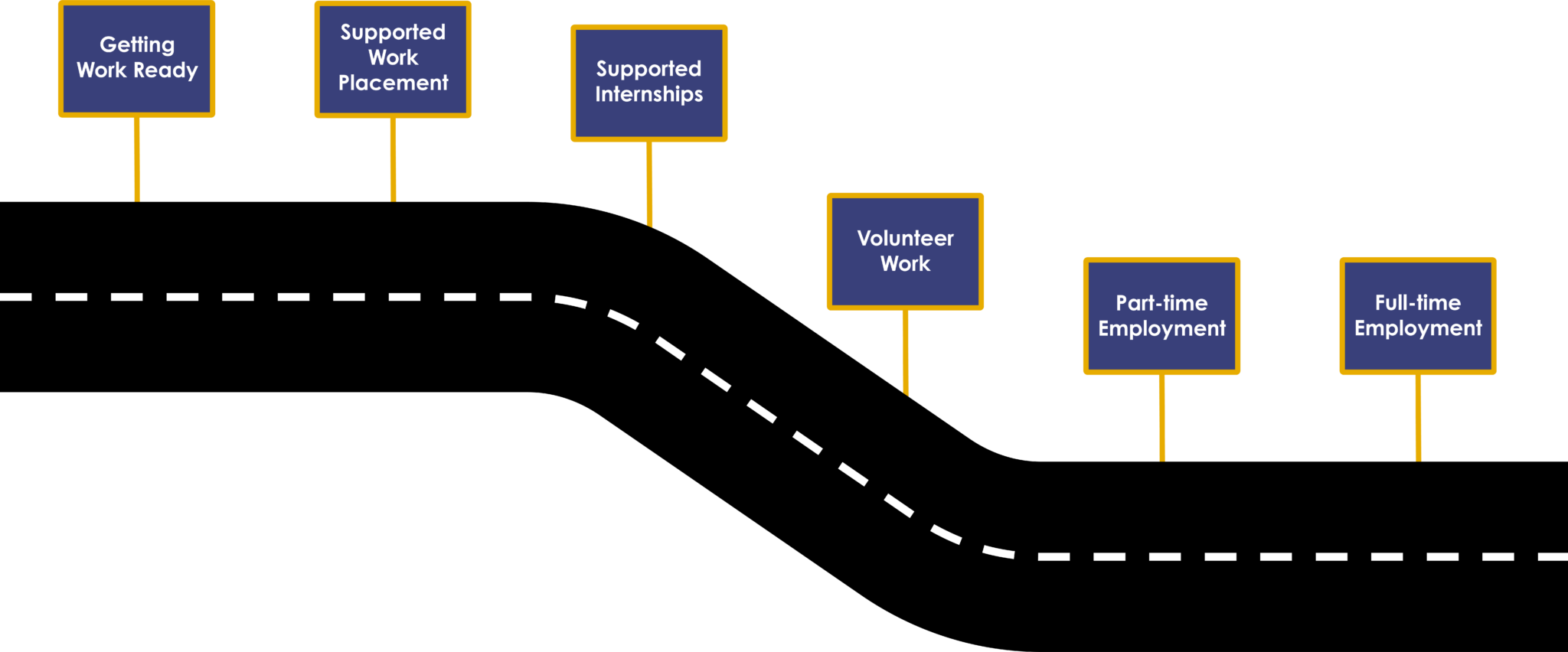
My new job makes me feel like a completely different person.
Kay
The key reasons why employment matters
1
A sense of purpose
Having a job provides a sense of purpose and structure to a person’s daily life. This can significantly contribute to improving self-esteem and mental and physical well-being. It also reduces the likelihood of feelings of isolation and depression that some people may experience.
2
Social integration
Employment can facilitate social integration by offering people the opportunity to interact with co-workers, clients, and customers. Through these interactions, they can develop crucial social skills, build personal relationships, and foster a sense of belonging within their communities.
3
Skills development
Employment allows individuals to develop and refine a diverse set of skills, including communication, time management, problem-solving, and teamwork. These skills not only benefit them in the workplace but also in their personal lives, helping them navigate various situations and challenges.
4
Financial independence
Securing a job enables people to attain financial independence, providing them with the means to support themselves and their families. This financial stability can significantly enhance their sense of self-worth and empowerment.
5
Community contribution
By being employed, people actively contribute to society, showcasing their unique talents and abilities. This can help promote a more inclusive and diverse workforce, fostering a greater understanding and appreciation of neurodiversity in the broader community.
Working provides me with a sense of purpose and achievement.
Harry
The three steps of our programme
1
Getting Work Ready
- Confidence and team building
- Professional working relationships and how to build them
- Job Skills understanding
- Employer visits to learn more about work environment and the skills needed to work
- Travel training and how to use a range of public transport
- Independent living skills, including cooking, managing a household and budgeting
2
Finding and securing a role
- Supported internships
- Career counselling and support services
- Job club and skill development (including creating an impactful CV)
- Creating and developing a LinkedIn profile
- Effective job search and targeted applications
- Interview and presentation techniques
3
Ongoing work support
- Ongoing support and guidance from our job coaches
- Helping people to navigate their roles
- Building confidence
- Help with accommodations and modifications
- Fostering positive relationships with co-workers
- Detailed supported integration

Case Study
Jayme's Story
After Jayme was diagnosed with Autism, he attended our weekly job club which assisted him with the practical tools needed to succeed in job searching and preparation for the world of work. He successfully completed a mock interview with our HR manager and CEO in November 2019.
In January 2020 Jayme engaged in 1:1 sessions which further developed his skills in communication, literacy, and interview preparation. He also undertook various courses including Mental Health Awareness Level 2, Mental Health First Aid, and Emergency at Work First Aid. At the same time, he participated in a group job club and continued to learn and develop his skills and knowledge in the following areas: disclosure, salaries, job applications, personal statements, CV’s, live job applications, interview prep and guidance.
With support from his job coach, he applied and prepared for a Safety Steward role at MK Dons. He was successful and was thrilled that all his hard work in preparation had paid off.
What we achieved in 2023






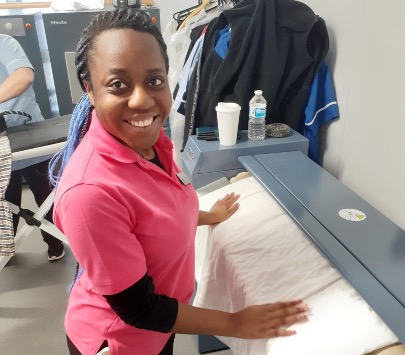
Case Study
Julia's Story
We’ve been working with Julia for over a year, to get her work ready and support her in a role. She had previously had a couple of voluntary roles, but never a paid job.
At our first meeting, she told us she was particularly interested in working or volunteering in a care home. Well, now she is.
We have worked closely with Chartwell Manor Care Home in Aylesbury, who were so impressed with Julia that they created a bespoke ‘General Assistant’ position for her. Julia’s role predominately focuses on helping to run activities for the residents, as well as assisting with laundry and catering.
She began her job doing 8 hours a week (2 shifts of 4 hours) and there are already plans to increase this to 16 hours per week (4 shifts of 4 hours) in coming months.
Our learning disability and autism employability brochure
If you’d like to find out more about how we help people with learning disabilities gain employment and the service we provide then you can downland our brochure below.
Related Articles

The Accessible Workshop
Each person works from clear, structured plans on commissioned and bespoke projects. The income generated is reinvested into the enterprise or used to support our

Work Experience Groups
Each group combines practical experience with theory-based sessions to help you identify the most suitable pathway for the future. Whether it be volunteering or paid
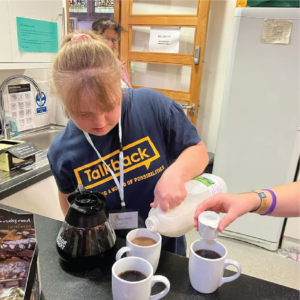
Serving up work experience at All Saints Church
Three members of our Personal Development Skills (PDS) programme, Lifestyles group, have been taking part in a work experience placement at the Mustard Seed café
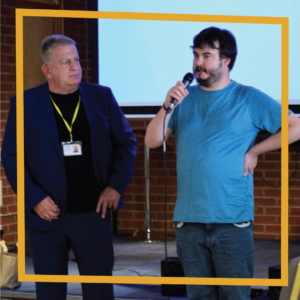
Talkback supports Shout out for SEND conference
Talkback were delighted to take part in the Shout out for SEND conference last Wednesday. Hosted by Buckinghamshire Council, this free event took place at
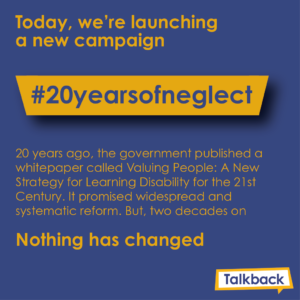
Enough is enough. It’s time we truly valued people with learning disabilities
Back in 2001, some two decades ago, the first white paper that had been written in 30 years about people with learning disabilities was released
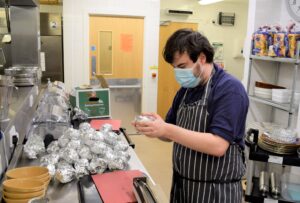
A Future Full of Opportunity
Barriers & Discrimination A recent survey of 500 employers, conducted by the Leonard Cheshire Charity, found that 40% of hiring managers saw their ability to
